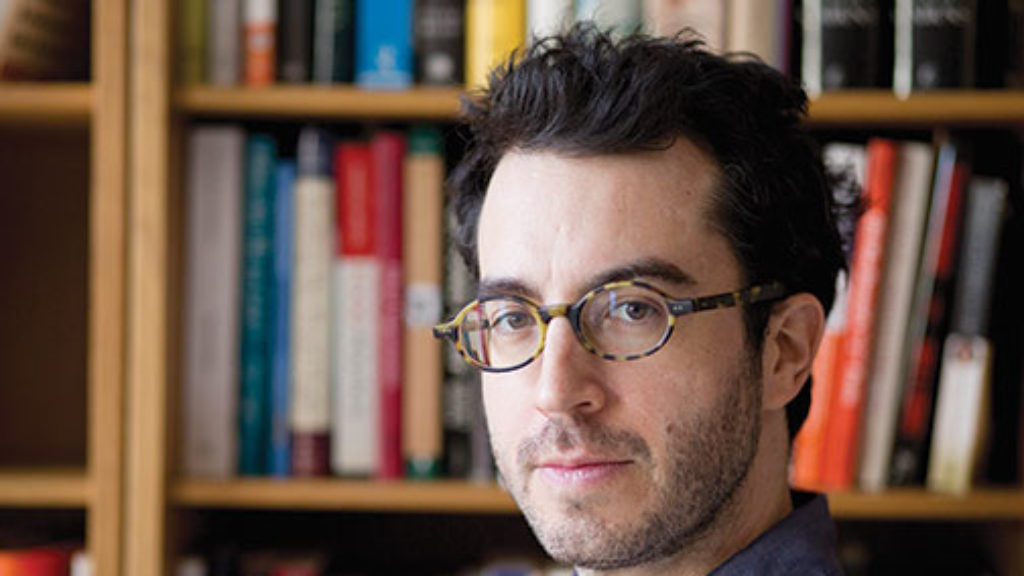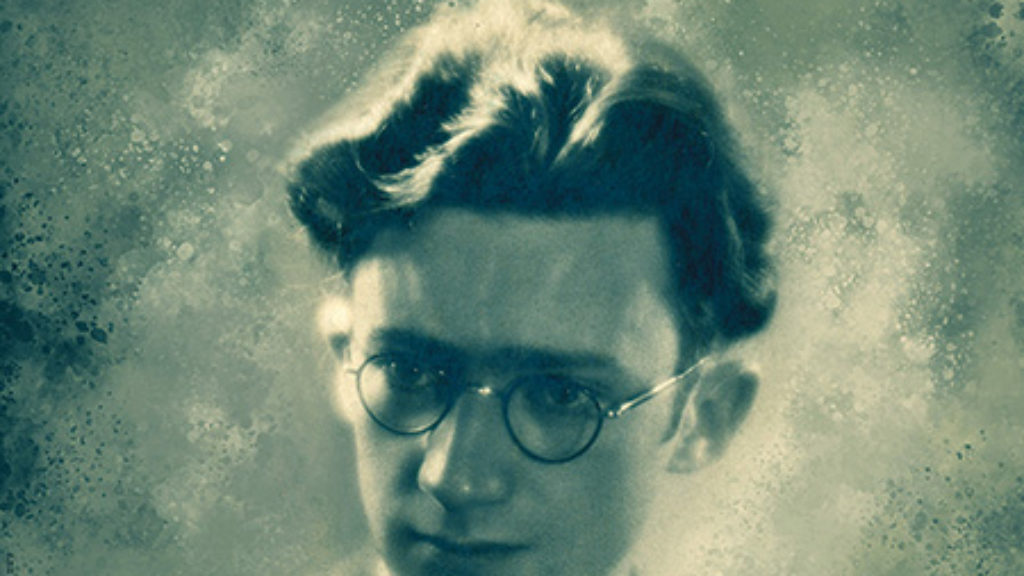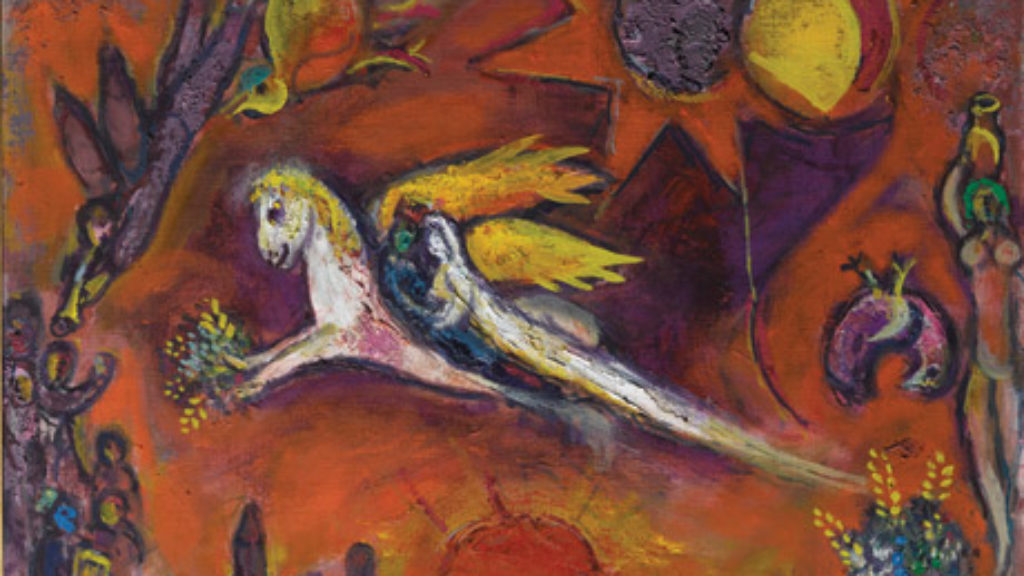Biblical Start-Ups
When Virginia Woolf collected her literary essays in a volume entitled The Common Reader in 1925, she defined her audience as “private people” reading for their “own pleasure rather than to impart knowledge or correct the opinions of others.” In Beginnings, his second book of essays on the Hebrew Bible, Meir Shalev, a noted Israeli writer, performs the same service for the Bible that Woolf did for English literature. As Shalev writes in his introduction, his purpose in writing is to “urge readers to go back to the original and make new discoveries—about themselves as well.”
Shalev’s impetus for writing these linked essays is to explore the first time particular words are used in the Bible. Why, for instance, do we assume the first dreamer mentioned in Genesis is Jacob, who dreams of angels ascending and descending a heavenly ladder, when in fact it is Abimelech, King of Gerar, who dreams the truth that Sarah is not Abraham’s sister? Here, Shalev also gives a helpful definition of the biblical dream: “not a complicated psychological vehicle, but rather a simple, practical tool by whose means God has His say.”
These essays bring a novelist’s insight to the analysis of biblical characters. Thus, Shalev’s notion that an “essential feature” of Abraham’s personality is his “aversion to confrontation” has the virtue of explaining a number of psychological and textual puzzles, including the events that led up to the almost-sacrifice of Isaac. Of Jacob he writes, “it seems that despite the divine decision to give him a new name, Jacob, was not finished with his old one.” Later, when an elderly Jacob describes his life to Pharaoh in the past tense, Shalev explains that since he thought his son Joseph was dead, it was “as if his days had already ended.”
Shalev’s discussion of the fraught family narrative that is the Joseph story in his essay “The First Hate” (which also draws on Thomas Mann’s novels) is particularly insightful:
Despite his gifts of imagination, he could not conceive of the fiction his brothers had concocted, the wild animal and the tunic soaked in blood.
Joseph’s behavior towards his brothers in Egypt is not, according to Shalev, a form of revenge, but rather, “a form of investigation. Joseph wanted to test his brothers before revealing himself to them.”

This attentiveness to the motivations behind biblical dialogue is also present in Shalev’s discussion of the book of Jonah. The sailors on the storm-tossed ship ask Jonah about his people and his “occupation” but he only answers the former. In fact, Shalev reminds a reader, the standard Hebrew words for prophet (navi, chozeh, ro’eh) never appear in the four chapters of Jonah. Shalev writes that if Jonah were to declare his occupation he would look ridiculous, because a “prophet who cannot foretell a storm that will engulf a ship in which he himself is sailing is not much of a prophet.” Shalev’s description of Jonah’s use of a mere five words to encourage the people of Nineveh to repent, od arbaim yom ve-nineveh nehepokhet (“Forty days more and Nineveh shall be overthrown”), shows his knowledge of the storyteller’s craft: Jonah’s “minimalism is deliberate” and allows the reader to focus on “his professional relations with his employer, the Lord.”
Sometimes, Shalev persuasively interprets what is not spoken at all. He notes, for instance, that the word “forgiveness” does not appear in the Joseph story. More provocatively, he reads the dramatic story in which the prophet Elisha blesses his childless Shunemite hostess with a son, whom he must later resuscitate, as implying that Elisha was, in fact, the child’s father.
Shalev’s literary skepticism is directed at rabbinic texts as well. He is certainly right that the midrash tends to “blame the victim” in its treatment of the rape of Dinah, but too often he gives the ancient rabbis less than their due as sensitive readers. This neglect is, no doubt, inspired by Shalev’s very contemporary Israeli desire to wrest the Bible from rabbinic control. Of God’s arbitrariness in opening and closing wombs he writes that it is
a sign that he does not reveal all of his reasons to human beings. Certainly not to the self-appointed spokesmen for the Almighty who speak only for themselves and for the religious institutions from which they earn their keep.
For all the subtle and occasionally startling insights in these essays, there is also a great deal of paraphrase, which can sometimes feel tedious. Must a reader be told that Ecclesiastes did not “subscribe to the simpleminded formula that organized religion would have us believe: that the righteous are rewarded and evildoers are punished”?
However, one appreciates that in these essays Shalev is working to revive the classic Zionist project of making the Bible the property of the common Israeli reader, and he may have to remind some of those readers about some of the details. To Shalev, the Bible is not just a text, but a product of the land where he lives. He describes going on hikes and doing “on-site readings where the stories took place,” and of seeing a friend of his father demonstrate with a slingshot how David might have used his weapons. The English-speaking reader will never develop this same closeness with the text, but Shalev’s essays can hint at the experience of knowing both language and land, and how that contributes to a fuller understanding of the text. Beginnings belongs on the same bookshelf as David Grossman’s Lion’s Honey, a masterful discussion of the Samson cycle by a noted Israeli fiction writer.
One drawback to essays written for the common reader can be a lack of scholarly context. For instance, Shalev points out that Elijah is described as a “Tishbite” though there is no known place “Tishbeh,” and suggests that the appellation might be connected instead to the root toshav, meaning that Elijah was a non-native. At points like this, it would be useful to know what Bible scholars have said about such speculations.
But in the end, one forgives Shalev such sins of omission in a collection of essays so full of literary insight and good humor. In his discussion of the Ten Commandments, Shalev jokes that the last of them is “Thou shalt not covet” because no Jew is capable of a perfect ten—”nine is the highest score on the Jewish report card.” One closes this book of essays in a similar spirit, grateful for near perfection.
Suggested Reading
A Certain Late Discovery
Was Jacques Derrida a Jewish thinker?

There He Goes Again
Foer departs from Roth’s model in many ways; perhaps most unsettling is the fact that he confuses crassness for humor.

Yiddish Heroism, Hebrew Tears
For Avraham Sutzkever, life and work were not even slightly separate, since his was a life not merely shaped by poetry in a metaphorical sense but literally saved by it, when a poem of his produced an airplane.

I Have Come to My Garden
Without the Torah, says Rabbi Akiva, we would still be able to discover all its truths by delving deeply into the words of the Song of Songs.
Comments
You must log in to comment Log In